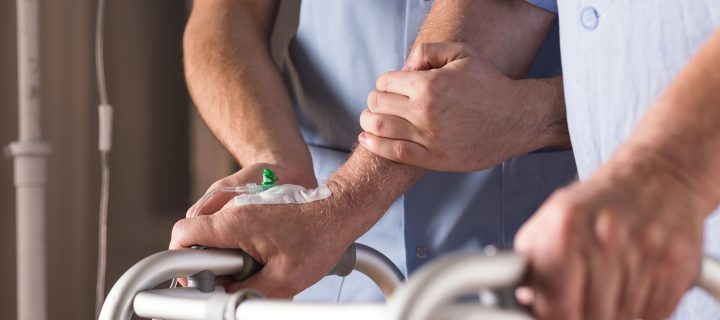For some patients, recovering from the virus can actually take years. Here’s how.
Hundreds of thousands of people have already died fighting the coronavirus worldwide. On a positive note, millions have fought off the virus and lived to tell the tale. The time it takes each patient to recover from the rampaging virus, however, depends case to case.
According to the WHO, recovery generally takes somewhere between two and eight weeks to achieve. For some, symptoms subside and life gets back to normal quickly. For others, however, the virus leaves its imprint.
Patients who have suffered through a critical form of the virus and have been hospitalized, may have lasting psychological damage. They may also have physical challenges to overcome. Here is a brief look at both.
Physical Healing
A typical symptom of the virus is having trouble breathing, and for some this can last for a while. This happens because the immune system has decided to overreact to the virus and has caused damage. This includes inflammation in the lungs and scarring, which are two factors that lead to shortness of breath.
Some patients find even after shaking the virus off, whole body weakness and shortness of breath continues for some time. Some medical experts estimate it can take as long as two months to recover from this lingering fatigue, and that patients could need a lot of sleep for a while.
Related: How Air Travel May Change After COVID-19
Those patients who were placed on a ventilator may be rehabilitating their muscles and even learning how to walk and swallow again.
If someone has had to spend a considerable amount of time in an intensive care unit (ICU) in hospital, there will be a loss of muscle mass. According to Dr. Alison Pittard, Dean of the Faculty of Intensive Care Medicine, speaking to BBC.com, these patients may need anywhere from 12 to 18 months to fully recover.
For those who have developed acute respiratory distress syndrome (ARDS), the recovery time could be even longer. For some, years can pass and some will still feel the lingering effects of the illness.
PTSD
Some coronavirus recoverees will not only be facing physical challenges after fighting off the virus, but also long term mental ones. Post traumatic stress syndrome (PTSD) is something medical experts say will likely affect scores of patients. Because some patients have come so close to dying and may have been slipping in and out of consciousness while in the hospital the potential for psychological scarring is high. Those who will suffer from coronavirus PTSD may display feelings of chronic fear, arousal, and the desire to avoid everyday situations.
The good news is that PTSD can be treated and managed if approached properly. Psychotherapy to treat it can involve cognitive and exposure therapies, along with eye movement desensitization and reprocessing (EMDR). These approaches can help patients regain control over lasting memories and fears. At times, medications such as antidepressants, anti-anxiety medications, and those that reduce nightmares can also help to better the symptoms of PTSD.
If you feel that the coronavirus has left a lasting impression on your body or mind, consult with your doctor. You can likely regain your previous self or something close to it, with time.












